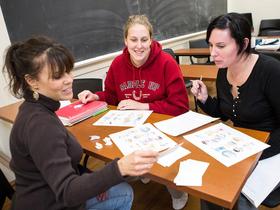Switching Careers? Consider Going to a Community College
There comes a point in every person’s life where you feel ready for a change. Perhaps you’ve been a stay-at-home parent for the past few years, or maybe you’ve been working the same job since you graduated high school. No matter what your current situation, it is customary to wonder if there might be something better out there for you.
Unfortunately, suddenly picking up and changing your life isn’t as easy as you might like – especially if you are considering a career change. With the cost of college tuition rising steadily, more college graduates enter the workforce each year with limited work experience and low wage expectations. In many fields, it’s impossible to get a job unless you have a degree, but even so, that degree may not be worth much.
So, what do you do if you want to change careers in the middle of your life and you don’t have the knowledge or experience to do it on your own? Consider going to community college. Many community colleges offer prerequisite classes that can prepare you to transfer to a traditional school if you have a particular career path in mind, or you can enter a vocational training program. Either way, choosing community college will save you some money and put you on the path to your new future. Keep reading to learn more.
This video by Linda Raynier offers four tips for a successful career change.




























